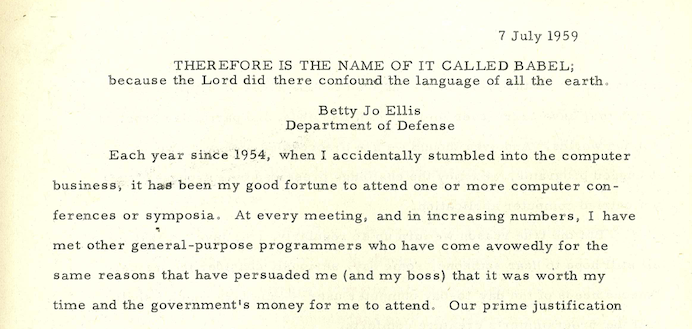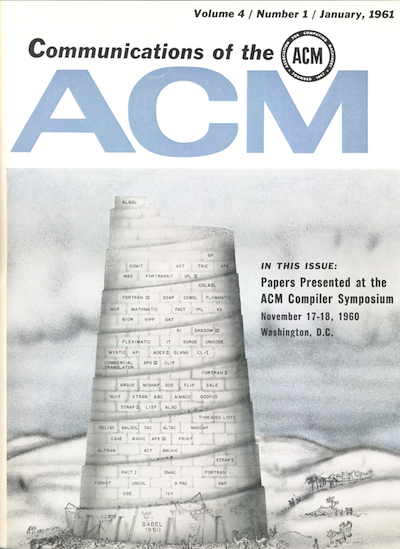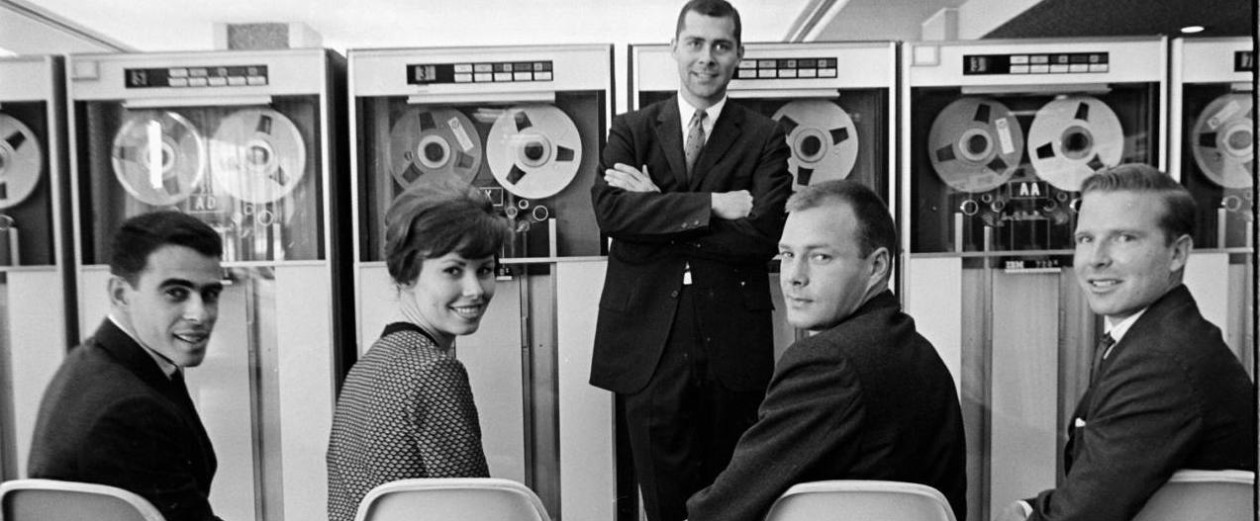Writing on the blog Difference Engines, Lilly Irani has proposed the crowdsourcing of “an archive of non-men in computing in a way that also challenges the boundaries of what is considered computing?” This is an excellent idea, and as a small token of support I am posting below a few representative images from my own research. They are meant to capture the range of representations of women as users, producers, beneficiaries, and victims of computing.
This is obviously only a small start. No commentary for the moment. Stay tuned…
Click through for larger images.

The notion of the computer programming “language” is a familiar concept to even the casual user of computer technology, but this is not a concept that would have been familiar to the earliest programmers. The development of linguistic metaphors for the activity of programming took some time to develop, and there is some excellent new work being done in this area. Almost as soon as people start talking about programming languages, however, they also start criticizing the seemingly bewildering array and variety of such languages. The “Tower of Babel” metaphor was commonly invoked to describe this profusion of programming languages. In fact, there is an entire chapter of The Computer Boys devoted to discussion, appropriately entitled “Tower of Babel.”
The iconic reference to the Tower of Babel problem is the cover of the January 1961 issue of the Communications of the ACM, which featured the tower on the cover.

In a recent research trip to the Charles Babbage Institute, however, I discovered an earlier reference, a portion of first page of which is represented above. This was a 1959 paper by Betty Jo Ellis, who was then working at the Department of Defense. I don’t know much else about Ellis, but judging from the small set of papers at the Babbage, she was not only a sharp programmer but had a wicked sense of humor.
Computers, Programmers, and the Politics of Technical Expertise
















 Follow
Follow
